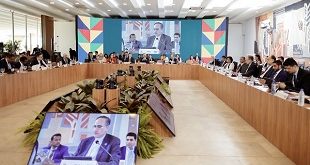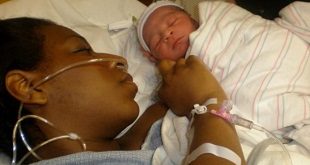
By Agnes E. Nantaba
FDC elections boss speaks on the `inconvenience of the democracy’
The opposition Forum for Democratic Change party (FDC) has gained a reputation as the most internally democratic party in Uganda. It holds regular free and fair election for all positions. Dan Mugarula is the chairman of the FDC Electoral Commission. He talked to Agnes E. Nantaba on how he pulls off the successes, including the Sept. 2 election in which the founding FDC leader Dr Kizza Besigye bounced back as party flag bearer for the 2016 election after beating incumbent president, Maj. Gen. Mugisha Muntu. In true democratic spirit, Muntu immediately pledged his support to Besigye.
What are your key observations from the FDC presidential flag bearer elections?
My focus was to have a free and fair process not only talked about but practiced. This was achieved. We have never received any contests against the results. On the whole, we were working for satisfaction of those involved in the process rather than our own. Through putting in place a process that is fair, transparent and just. It also involved making my staff understand what is entailed in the electoral processes. There are various temptations and if you succumb to them, you will be driven into a situation of power fighting, where the outcome is contested. It literally becomes a bigger problem.

What is the strategy behind FDC’s democratic maturity?
It is all about involving stakeholders in the initial processes. The determinants in the electoral process are ‘who is eligible to vote’ and ‘who is eligible to stand’. We have guidelines on both although the who is eligible to vote is mostly contested. If for instance you are the chairman of Jinja, you are a delegate and therefore a voter and at the time of voting, you may have something that holds you and end up failing to attend. In the past, such people would send representatives who claim they are the right persons and we had no well spelt criteria to prove them. So we decided to take photographs of those from the upcountry grassroots structures and we also tasked the contestants and their agents to take similar photographs of who is eligible to vote.
In the process, candidates had weekly meetings in which they did such work. This helped us ascertain who we expected to turn up for voting and it saved us a lot of trouble. We did a lot of vetting and cleaning of the voter’s register such that at the end of the day, the final voter’s list was endorsed by all stakeholders including the EC and the candidates’ chief agents who were all availed with copies.
At the entrance to the voting venue, candidates had 10 agents each including five for EC to make 25 and these were all tasked to vet who is eligible to vote. With that process, there was no way we could receive contestants for the results. All the parties agreed on the outcome. Gen. Mugisha Muntu was quick to concede to Dr. Besigye that he stood against him but the voters preferred Besigye. He also pledged to rally behind Besigye. Unfairness creates problems as is happening in other parties.
What challenges did you face in managing an election process where the incumbent was standing against the former president?
We have the party constitution which says any party card holding member who satisfies the requirements of the Presidential Elections Act of Uganda, the Electoral Commission Act and the Constitution of the Republic of Uganda is eligible to contest. Besigye was like any other person who could have emerged. Some people’s understanding and logical thinking was that the incumbent president automatically becomes the party’s presidential flag bearer which is the case for some parties. The FDC case is different.
What is your view of Besigye’s win as the party’s flag bearer as he has thrice failed to dislodge President Museveni?
Besigye has not failed to dislodge President Museveni; the incumbent has failed to concede defeat. This means Besigye must rally more support and change strategy to make sure that come February 2016, the president concedes defeat.
If we consider Nigeria, President Muhammadu Buhari contested four times after which he finally became president. We should also not forget that being a flag bearer is not an office; it is a process that comes up during election period after which it goes after five or six months but party president is an office of five years.
What lessons should we learn from the FDC elections?
In most cases, the leader of the process and his integrity determines quality of the outcome. Look at who is heading the electoral process and credit the team for resisting temptations and fostering a clear process that unites the party. Suppose we had nominated Besigye or Muntu at midnight, you would expect fist-fights in Namboole. We remain men of integrity who respect the party and the country’s constitution. At Namboole, we foresaw a fight and asked every delegate to get out much as it cost us Shs9 million for flood lights because we had not budgeted for it since we were supposed to end the process by 05:00pm. This was nothing in comparison to the unity of the party. It is the inconvenience of the democracy.
What is your view on The Democratic Alliance (TDA) presidential candidature?
The whole contention problem began when Hon. Mbabazi was nominated in the night which was against the set guidelines. There is no way we can have the dates and time frame extended because someone is absent. By TDA extending beyond limit is like a judge deciding a case at midnight. Many people contest. That is why they kept announcing that they are not announcing. Other people considered Mbabazi as smuggling in or bribing his way into TDA or compromising the TDA members. The process is already bringing us a mess because we would be having Mbabazi continue as an independent candidate after missing the deadline and the rest would have given us a joint candidate on time.
What would have been the implication of Besigye or Mbabazi’s win as TDA joint presidential candidate?
Everybody comes with a base and as FDC, we have structures world over, held several delegates conferences one of which elected the flag bearer. Other people are asking for Amama Mbabazi’s structures. How do we trust that he won’t dine with Museveni again? A famous saying from Obote when he was contesting against Ssemwogerere, he asked ‘who are Ssemwogerere’s commanders’. We are also asking, `who are Mbabazi’s commanders’?
When Besigye denounced the Movement System, over 50 MPs followed him. While some of them came back as MPs, others lost but still remained with him including the late Eriya Kategaya. He showed his commanders. Today he has 40 MPs, 11 LC5s, seven Mayors, councilors, 30 LC 3 chairman and other representatives. Besigye has his base but Mbabazi’s base is just assumed.
What next for FDC
FDC members are in the process of picking nomination forms from district offices. They are tabulating and between 7th and 15th October, we shall hold our party primaries for grassroots where the position has more than one candidate to contest. The process is ongoing following the guidelines. The aim is to field a candidate at every contestable level. Our people should therefore express interest at all levels so that FDC can take more than half of parliamentary seats if we can’t take all so that when we are in government, we have a base for decision making.
 The Independent Uganda: You get the Truth we Pay the Price
The Independent Uganda: You get the Truth we Pay the Price



